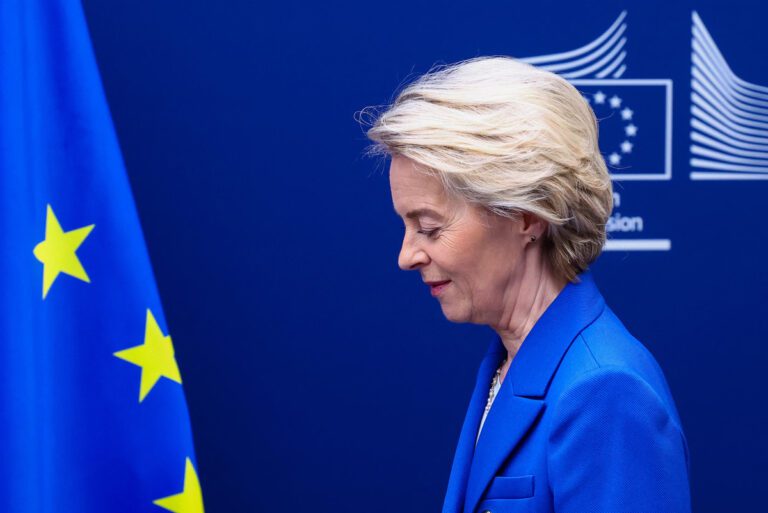🎧 Listen to This Article
European Commission President Ursula von der Leyen signals readiness to impose levies on U.S. digital companies if negotiations with the U.S. fail.
The European Union is prepared to escalate its trade dispute with the United States, including the possibility of imposing taxes on major U.S. tech companies, if negotiations with U.S. President Donald Trump falter, European Commission President Ursula von der Leyen told the Financial Times on April 10, 2025. This bold statement highlights the EU’s readiness to deploy its most potent trade measures in response to the ongoing tensions between the two global economic powers.
Von der Leyen’s Warning: Expanding the Trade War
In her interview, von der Leyen underscored the EU’s commitment to securing a balanced trade agreement with the U.S. during the 90-day hiatus Trump announced on April 2, which temporarily suspended additional tariffs. However, she made it clear that if talks fail to reach an equitable resolution, the EU is prepared to dramatically expand the scope of the transatlantic trade war, which could include new taxes targeting U.S. digital services, specifically in the realm of digital advertising revenues.
This could have significant implications for U.S. tech giants, such as Meta and Alphabet’s Google, which would be directly affected by any such digital advertising tax. The European Union, which has long taken a firm stance on regulating digital services, could use these potential new measures to counterbalance what it perceives as an unlevel playing field in global trade.
A Turning Point in Global Trade
Von der Leyen described the current state of global trade as a “complete inflection point,” highlighting the drastic shift in U.S.-EU relations. She pointed out that the EU would never return to the status quo with the United States, emphasizing the permanent changes in trade dynamics brought about by the Trump administration’s tariffs and trade strategies.
The EU had previously attempted to negotiate a resolution with the U.S., but these efforts were stalled, according to von der Leyen, until Trump’s April announcement. Trump’s decision to impose a 20% tariff on EU goods was a stark reminder of the growing tensions and the potential for further escalation in the transatlantic trade conflict.
EU’s Protectionist Measures for Global Trade Stability
Amid concerns of a global trade war, von der Leyen also addressed the EU’s strategy regarding Chinese imports. The EU has signaled that it would not allow Chinese products affected by U.S. tariffs to flood European markets. To mitigate this risk, the EU is ready to implement protective measures if a new monitoring system reveals a surge in Chinese imports into the EU.
This stance underscores the EU’s resolve to safeguard its internal market from any market distortions that might result from the U.S.-China trade conflict. The monitoring system is designed to ensure that any unintended consequences from U.S. tariffs on China do not adversely affect European businesses and industries.
Conclusion: A Critical Moment for Transatlantic Trade Relations
The current moment represents a critical juncture for global trade relations, with the EU preparing to take significant steps in response to the ongoing trade tensions with the U.S. Von der Leyen’s comments signal that the EU is ready to defend its economic interests robustly, even if it means imposing new taxes on U.S. tech giants or expanding its trade conflict with Washington. The outcome of the next phase of negotiations will be crucial in determining the future dynamics of transatlantic trade.
For further details, clarification, contributions, or any concerns regarding this article, please contact us at editorial@tax.news. We value your feedback and are committed to providing accurate and timely information. Please note that our privacy policy will handle all inquiries



